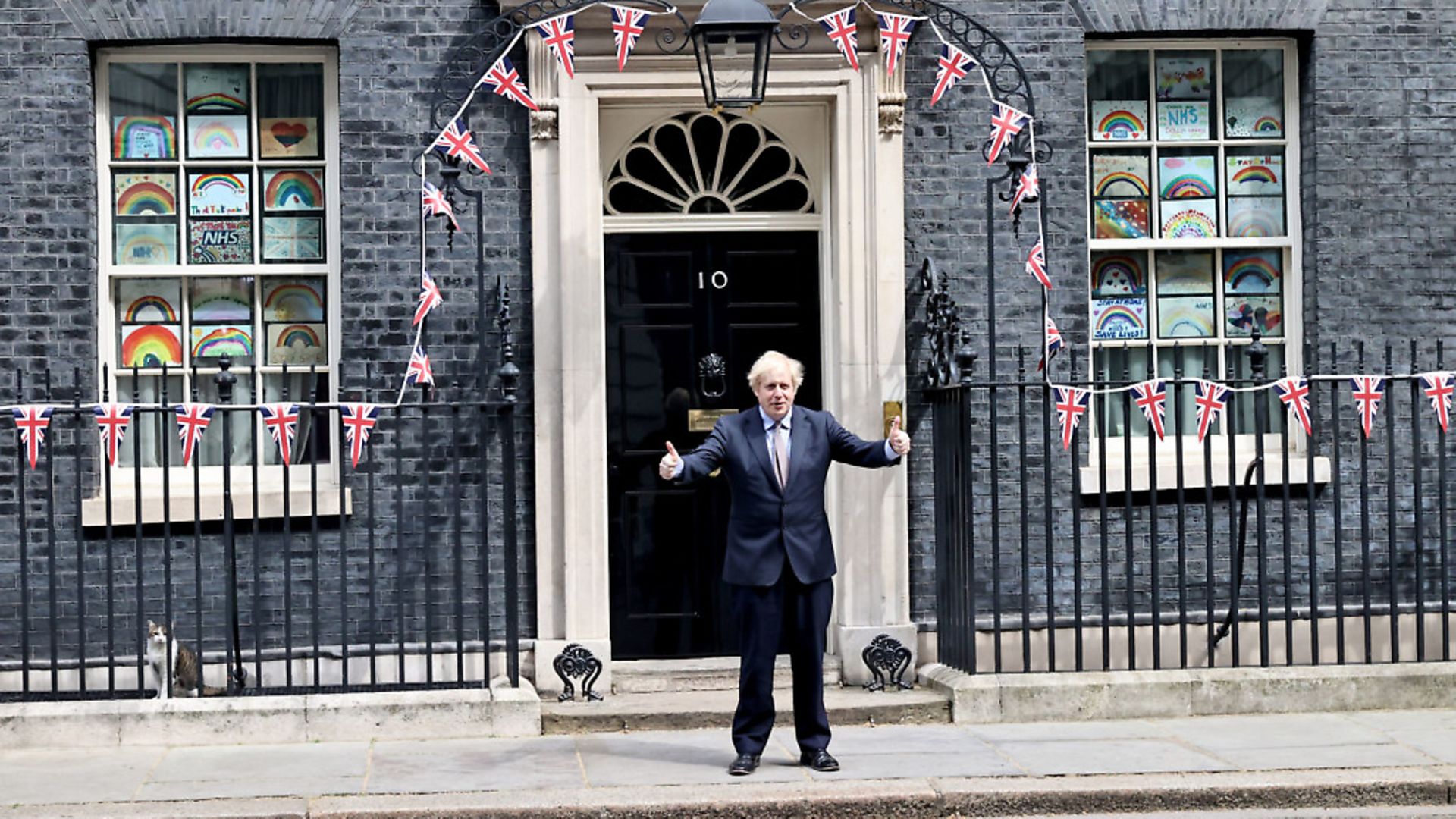
Leaders of all the devolved nations have rejected Boris Johnson’s new ‘stay alert’ advice in favour of keeping the ‘stay at home’ message in the fight against coronavirus amid criticism that the new slogan is unclear.
The prime minister was planning to drop his stricter message as he prepared to unveil his plans to ease the lockdown in a broadcast to the nation on Sunday evening.
He is now telling the public to ‘stay at home as much as possible’, keep two metres apart when going out and ‘limit contact’ with other people.
But the government’s efforts to maintain a unified UK-wide response to the pandemic seemed to be in jeopardy as the devolved administrations rejected his message.
The leaders of Scotland, Wales and Northern Ireland said they had not been consulted over the ‘stay alert, control the virus and save lives’ slogan.
Have your say
Send your letters for publication to The New European by emailing letters@theneweuropean.co.uk and pick up an edition each Thursday for more comment and analysis. Find your nearest stockist here or subscribe to a print or digital edition for just £13. You can also join our readers' Facebook group to keep the discussion and debate going with thousands of fellow pro-Europeans.
Opposition politicians and a scientist advising the government criticised the new message and Scottish first minister Nicola Sturgeon said the first she had heard of ‘the PM’s new slogan’ was in newspaper reports.
After a Cobra meeting with the PM and devolved leaders, Sturgeon told the Westminster government not to deploy the stay alert message north of the border, warning the ‘vague and imprecise’ slogan could be ‘catastrophic’.
The first minister said she does not know what ‘stay alert means’, adding: ‘Presumably we all live our lives in normal times staying alert to danger.’
She told her daily briefing that the lockdown remained firmly in place in Scotland but said her citizens could take unlimited exercise from Monday.
Sturgeon was not asking additional businesses to open or for people to start returning to work.
And she said she does not expect Downing Street’s immediate changes to be ‘significant’, with any differences to Scotland being ‘relatively minor’ for now.
Her Welsh counterpart, Mark Drakeford, said the ‘stay home’ message has not changed in Wales and Northern Ireland first minister Arlene Foster also said the nation will continue to use the ‘stay at home, protect the NHS, save lives’ message.
Downing Street sought to explain the ‘control the virus’ aspect, saying the public could do that by keeping the rate of infection down by ‘staying alert and following the rules’.
‘This is how we can continue to save lives and livelihoods as we start to recover from coronavirus,’ a No 10 spokesman said.
But behavioural expert Professor Susan Michie, who is a member of the scientific advisory group for emergencies (SAGE), said the new slogan is ‘a long way from’ being clear and consistent.
‘Dropping the ‘stay at home’ message from the main slogan in favour of generalised alertness may be taken as a green light by many to not stay at home and begin socialising with friends and other activities that increase the risk of transmission,’ the UCL scientist told the PA news agency.
Shadow health secretary Jonathan Ashworth earlier called for the PM to give ‘crystal-clear clarity’ on how the public must behave amid concerns that the lockdown is in jeopardy.
Ed Davey, acting Lib Dem eader, said the government must publish the science behind their decision.
He said: ‘Changing the slogan now, while in practice keeping the lockdown in place, makes the police’s job near impossible and may cause considerable alarm. Ministers risk sowing confusion and losing public trust with this muddled communications strategy and lack of transparency.
‘It’s not clear why the prime minister has made this decision. For it to make any sense, we need total transparency on the science and advice that has led to this change. Ministers must publish the evidence they are relying on to make these decisions to allow for real scrutiny.
‘We need to test, trace and isolate to keep people safe. Any move beyond lockdown will require this approach to prevent a new surge in infections and save lives. The government must be clear about when we can expect the roll out of such a system across the UK.’









